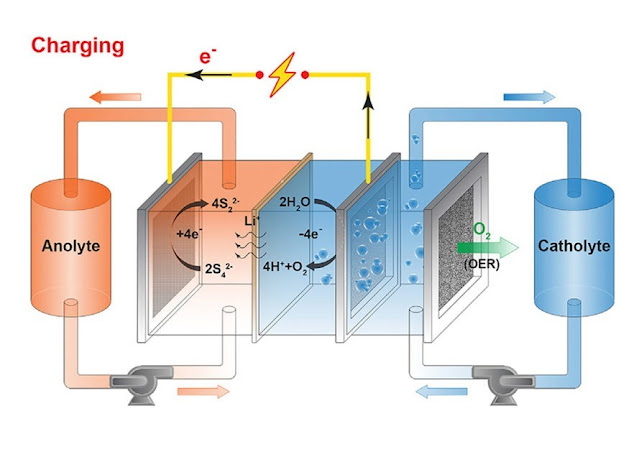Hydrogen Buses Market Rising Adoption of Sustainable Transportation to Drive Market Growth
 |
| Hydrogen Buses Market |
The
global hydrogen buses market is estimated to be valued at US$10.78 billion in
2023 and is expected to exhibit a CAGR
of 47.7% over the forecast period 2023-2030,
as highlighted in a new report published by Coherent Market Insights.
Market Overview:
Hydrogen buses are vehicles that use hydrogen as their primary source of fuel,
offering a clean and sustainable alternative to traditional gasoline or
diesel-powered buses. These buses are equipped with fuel cells that convert
hydrogen into electricity, powering the vehicle's electric motor. The adoption
of hydrogen buses is increasing due to the growing emphasis on reducing
greenhouse gas emissions and air pollution, as well as the need for sustainable
transportation solutions.
One key trend in the hydrogen buses market is the increasing investments
and initiatives by governments and automotive manufacturers to promote the
adoption of hydrogen fuel cell technology. Countries such as China, Japan,
Germany, and South Korea have implemented policies and incentives to support
the development and deployment of hydrogen buses. Additionally, major
automotive companies such as Ballard Power Systems, Toyota Motor Corporation,
and Hyundai Motor Company are investing in research and development to enhance
the performance and efficiency of hydrogen fuel cells, further driving the
market growth.
Porter’s Analysis
- Threat of new entrants: The threat of new entrants in the hydrogen buses
market is low due to the high capital requirements for setting up hydrogen
fueling infrastructure and manufacturing facilities. Additionally, existing
players have established strong brand recognition and customer loyalty, making
it difficult for new entrants to gain market share.
- Bargaining power of buyers: Due to the limited number of players in the
hydrogen buses market and the high demand for environmentally friendly
transportation solutions, buyers have limited bargaining power. They are
willing to pay a premium for hydrogen buses and are less likely to switch to alternative
options.
- Bargaining power of suppliers: Suppliers of hydrogen fuel cells and
associated infrastructure have moderate bargaining power. While there are a few
major suppliers dominating the market, the demand for hydrogen buses is
expected to increase significantly, which may lead to an increase in the number
of suppliers and thus reduce their bargaining power.
- Threat of new substitutes: The threat of new substitutes for hydrogen buses
in the transportation industry is relatively low. Hydrogen buses are considered
one of the most environmentally friendly transportation options, making them a
preferred choice over traditional diesel or gasoline-powered buses. Alternative
fuels such as electric batteries have their limitations and are not yet as
developed as hydrogen fuel cells.
- Competitive rivalry: The hydrogen buses market is highly competitive, with
key players constantly striving to improve their technology, expand their
market reach, and gain a competitive edge. The market is characterized by
collaborations and partnerships between companies to enhance their product
offerings and strengthen their position in the market.
Key Takeaways
The
global hydrogen buses market is expected to witness high growth, exhibiting
a CAGR of 47.7% over the forecast
period of 2023-2030. This growth is
primarily driven by increasing environmental concerns and the need for
sustainable transportation solutions. Governments and organizations worldwide
are actively promoting the adoption of hydrogen buses as a clean and efficient
mode of public transportation.
In terms of regional analysis, Asia Pacific is expected to be the
fastest-growing and dominating region in the hydrogen buses market. Countries
like China, Japan, and South Korea are investing heavily in hydrogen
infrastructure and have set ambitious targets for the adoption of hydrogen fuel
cell technology in public transportation. Europe is also a significant market
for hydrogen buses, driven by stringent emission regulations and government
support for clean energy solutions.
Key players operating in the hydrogen buses market include Ballard Power
Systems, Toyota Motor Corporation, Hyundai Motor Company, New Flyer Industries,
Van Hool, Wrightbus, Solaris Bus & Coach, CaetanoBus, Alexander Dennis
Limited (ADL), and MAN Energy Solutions. These companies are investing in
research and development, strategic partnerships, and expanding their
production capacity to meet the growing demand for hydrogen buses.
Overall, the hydrogen buses market presents significant opportunities for
growth and innovation as countries strive to achieve their sustainability goals
and reduce carbon emissions. Continued investment in hydrogen infrastructure
and advancements in fuel cell technology are expected to drive the adoption of
hydrogen buses across the globe.
Read
More:
https://www.marketwebjournal.com/hydrogen-buses-market-forecast-analysis-and-size/



Comments
Post a Comment